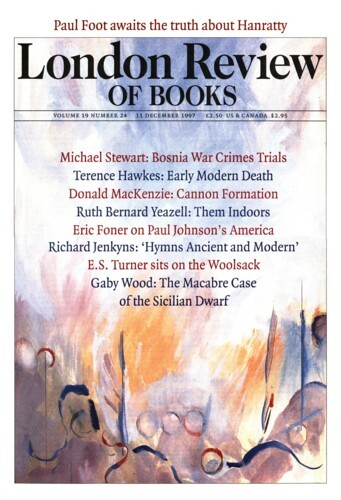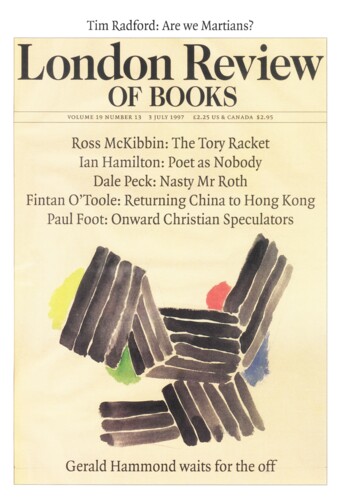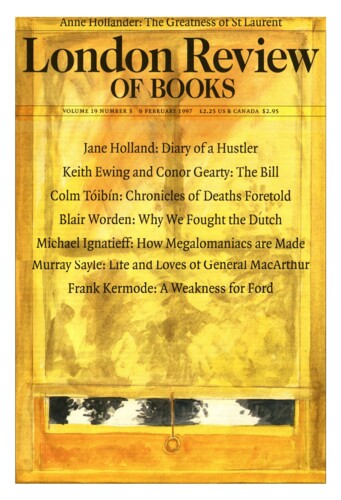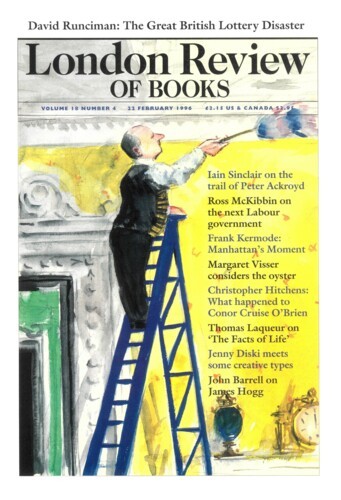Old Codger
Dale Peck, 11 December 1997
Kurt Vonnegut’s latest book, and, according to its author, his last, is almost impossible to appreciate without extensive knowledge of his previous work. As far as I can tell, this is deliberate and it can be considered a flaw or a virtue depending on one’s view of writing in general and Kurt Vonnegut in particular. But one thing is clear: if you’re not familiar with the characters who have populated Vonnegut’s writing since, say, 1965 – including Vonnegut himself and his fictional alter ego Kilgore Trout – Timequake will seem to be nothing more than a few salvaged fragments from an abandoned project glued together with autobiographical sketches and aphorisms. Timequake One, as Vonnegut calls the original book, seems to have started out as just another Vonnegut novel, but Timequake Two, as he calls the finished product, has been reconceived as the legend to the Vonnegut map, less a final act than a curtain call, a thin rubber band holding together the braided but distinct strands of a 45-year career and a 75-year life.’





